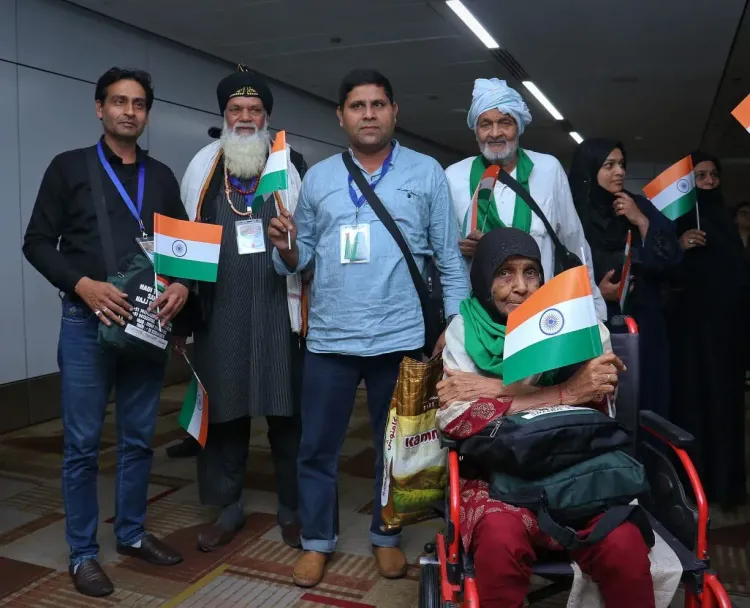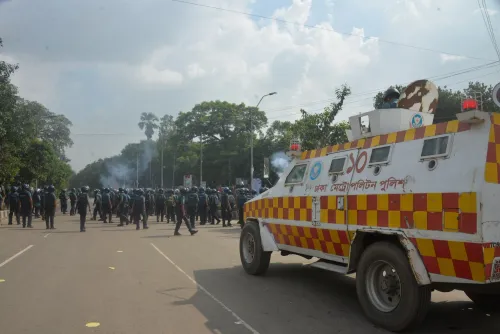Is India Evacuating Nepalese and Sri Lankan Nationals from Iran Due to Rising Tensions?

Synopsis
Key Takeaways
- Operation Sindhu aims to ensure the safety of Indian nationals in Iran.
- Nationals from Nepal and Sri Lanka will also be evacuated.
- Emergency contact numbers have been provided by the Indian Embassy.
- Coordination efforts are ongoing to facilitate continued evacuations.
- A Telegram channel has been set up for effective communication.
Tehran, June 21 (NationPress) As India accelerates Operation Sindhu to evacuate its own citizens from Iran amidst escalating hostilities in the Middle East, the Indian Embassy in Tehran has confirmed that, following official requests from the governments of Nepal and Sri Lanka, the evacuation initiative will now also encompass nationals from these neighboring nations.
In a statement posted on X, the Indian Embassy mentioned, "At the request of the Governments of Nepal and Sri Lanka, the Indian Embassy's evacuation operations in Iran will extend to include citizens from Nepal and Sri Lanka."
The embassy has also provided emergency contact numbers for those affected to seek immediate help: +989010144557, +989128109115, and +989128109109.
A dedicated Telegram channel has been established for effective coordination and communication.
This announcement comes as tensions spike sharply between Iran and Israel, especially following Israel's launch of 'Operation Rising Lion,' a military campaign reportedly designed to hinder Tehran's nuclear objectives.
In retaliation, Iran has executed a series of counterstrikes, contributing to a rapidly worsening security situation in the region.
In light of the escalating crisis, India has initiated Operation Sindhu to ensure the safe return of its citizens from Iran. Recently, a special evacuation flight from Ashgabat, Turkmenistan, landed in Delhi, bringing Indian nationals back from hazardous areas.
This was preceded by another successful operation late Friday night when 290 Indian students, primarily from Jammu and Kashmir, returned safely from Mashhad after Iran temporarily reopened its airspace.
To date, 517 Indian nationals have been safely repatriated under this ongoing operation.
The Indian Embassy in Tehran and the Ministry of External Affairs (MEA) are actively involved in coordination and logistical support to facilitate further evacuations.
Moreover, Iran has lifted airspace restrictions to allow three charter flights to evacuate around 1,000 Indian nationals—mostly students—from Mashhad, one of the cities impacted by the regional turmoil.









